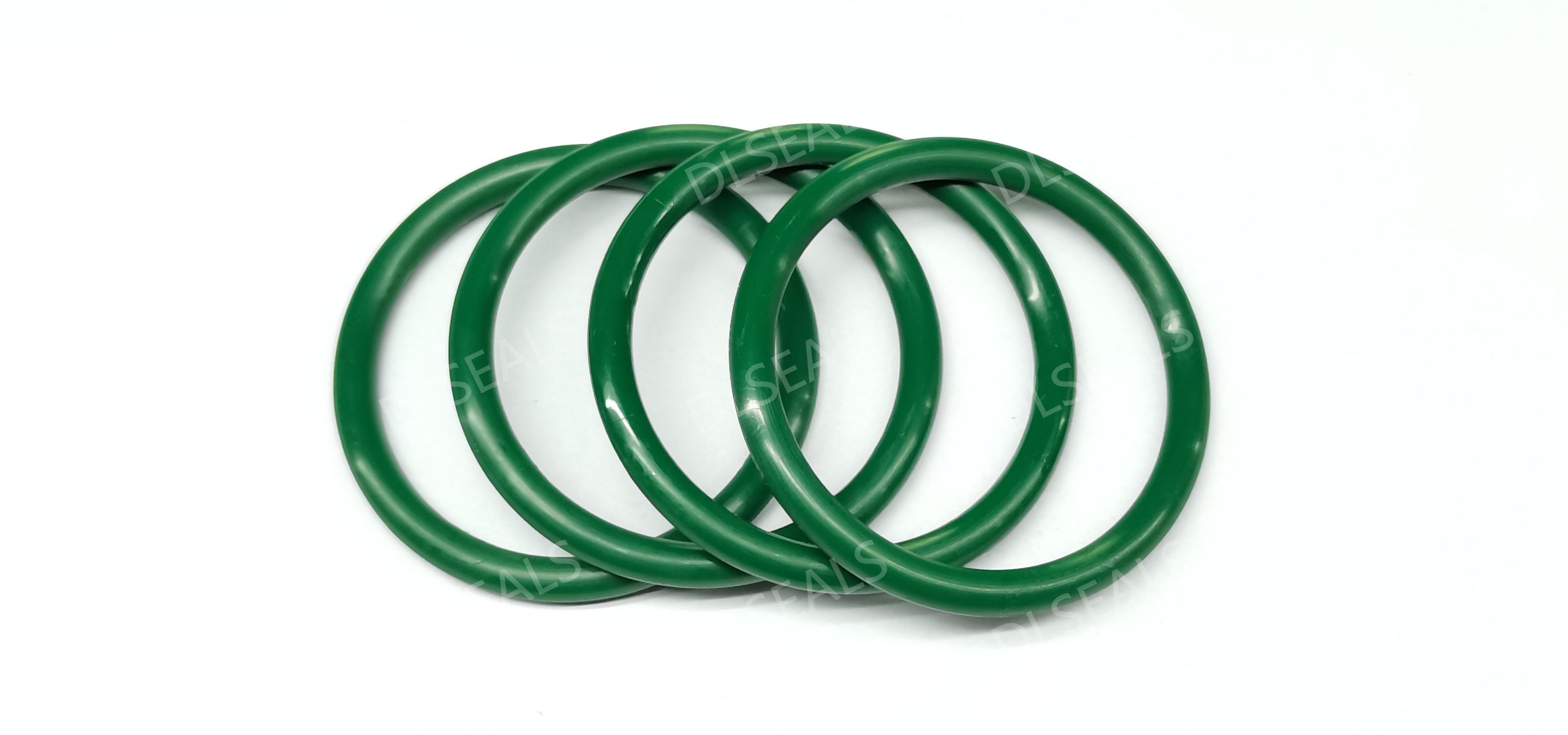News
A2024-11-08

In modern industry, the choice of seals is critical to the performance and efficiency of the system. Polyurethane seals have excellent performance in many fields due to their unique material properties. However, different application scenarios may require different sealing materials. This article will compare the performance, advantages and disadvantages and application areas of polyurethane seals with other common sealing materials such as rubber, perfluororubber and metal seals.
1. Polyurethane seals vs rubber seals
1. Comparison of material properties
Polyurethane seals:
Advantages:
High wear and oil resistance: Polyurethane has excellent wear resistance and is suitable for high friction and frequent movement occasions.
High elasticity: Polyurethane seals can quickly return to their original shape after being subjected to external forces and maintain good sealing performance.
Good tear strength: Not easy to tear due to sharp objects or complex working conditions.
Disadvantages:
High cost: Compared with ordinary rubber, the cost of polyurethane materials is higher.
Rubber seals:
Advantages:
Low cost: Ordinary rubber materials have low costs and are suitable for mass production.
Good corrosion resistance: Some special rubbers (such as nitrile rubber and fluororubber) have good oil and chemical corrosion resistance.
Disadvantages:
Poor wear resistance: Compared with polyurethane, rubber has poor wear resistance and is easy to wear.
Limited temperature resistance: Ordinary rubber is easy to age at high temperatures, which limits its application in high temperature environments.
2. Comparison of application fields
Polyurethane seals:
Automotive industry: Suitable for sealing of engines, transmissions and suspension systems.
Construction engineering: Suitable for door and window seals and waterproof seals.
Industrial equipment: Suitable for sealing of pumps, compressors and pneumatic equipment.
Rubber seals:
Household appliances: Suitable for sealing of household appliances such as washing machines and dishwashers.
Food and pharmaceutical industries: Suitable for sealing of food processing equipment and pharmaceutical machinery.
Daily necessities: Suitable for sealing of various daily necessities, such as sealing rings, gaskets, etc.
2. Polyurethane seals vs. perfluororubber seals
1. Comparison of material properties
Polyurethane seals:
Advantages:
High wear resistance and oil resistance: Suitable for occasions with high friction and frequent movement.
Good elasticity: Can quickly return to its original state after being subjected to external force.
Disadvantages:
Limited temperature resistance: Polyurethane seals are prone to aging at high temperatures, limiting their application in high temperature environments.
Perfluororubber seals:
Advantages:
Excellent temperature resistance: Perfluororubber can maintain good performance in high temperature (up to 250°C) and low temperature (down to -40°C) environments.
Excellent chemical corrosion resistance: Perfluororubber has strong corrosion resistance to most chemicals and solvents.
Disadvantages:
High cost: The cost of perfluororubber materials is very high and is mainly used in high-end and special fields.
Difficult processing: The processing technology of perfluororubber is complicated and requires special equipment and technology.
2. Comparison of application fields
Polyurethane seals:
Suitable for most sealing needs in medium and low temperature and medium and low corrosion environments.
Widely used in automobiles, construction, industrial equipment and other fields.
Perfluororubber seals:
Petrochemical industry: Suitable for sealing of high temperature, high pressure and highly corrosive media.
Aerospace: Suitable for sealing needs in high temperature and extreme environments.
Medical and food industries: Suitable for sealing needs with high hygiene standards and chemical corrosion resistance.
3. Polyurethane seals vs. metal seals
1. Comparison of material properties
Polyurethane seals:
Advantages:
High elasticity: can quickly restore to its original state after being subjected to external force and maintain good sealing performance.
Good wear resistance: suitable for occasions with high friction and frequent movement.
Disadvantages:
Limited temperature resistance: polyurethane seals are prone to aging at high temperatures and are not suitable for high temperature environments.
Metal seals:
Advantages:
High temperature resistance: metal seals can be used for a long time in high temperature environments and will not age due to high temperatures.
High strength: metal materials have extremely high mechanical strength and are suitable for high pressure and extreme working conditions.
Disadvantages:
Poor elasticity: Compared with polyurethane, metal materials have poor elasticity and are not easy to restore to their original state.
Limited corrosion resistance: ordinary metals are prone to rust and corrosion in highly corrosive environments.
2. Comparison of application fields
Polyurethane seals:
Suitable for most sealing needs in medium and low temperatures, medium and low pressures, and non-strongly corrosive environments.
Widely used in automobiles, construction, industrial equipment and other fields.
Metal seals:
Petrochemical and chemical industries: suitable for sealing needs of high temperature, high pressure and corrosive media.
Nuclear industry: Suitable for sealing needs in extremely high temperature and high pressure environments.
Aerospace: Suitable for sealing needs under extreme working conditions.
IV. Summary
Polyurethane seals, rubber seals, perfluororubber seals and metal seals each have their own unique material properties and application advantages. When selecting seals, comprehensive consideration should be given to the specific application scenarios, working conditions and cost budget. Polyurethane seals perform well in most medium and low temperature, medium and low pressure and non-strong corrosion environments with their excellent wear resistance, elasticity and flexibility, while other materials are more suitable for specific extreme working conditions and special needs. Through reasonable selection and application, the performance and efficiency of the system can be effectively improved to ensure the safe and stable operation of the equipment.
[DLSEALS kindly Reminder] Sealing issues? Turn to DLSEALS! As a sealing component manufacturer, we specialize in customizing sealing components, providing a full range of services from design, research and development, production, testing, and more. If you have more information you'd like to know, feel free to contact us directly. DLSEALS's product experts are dedicated to serving you!